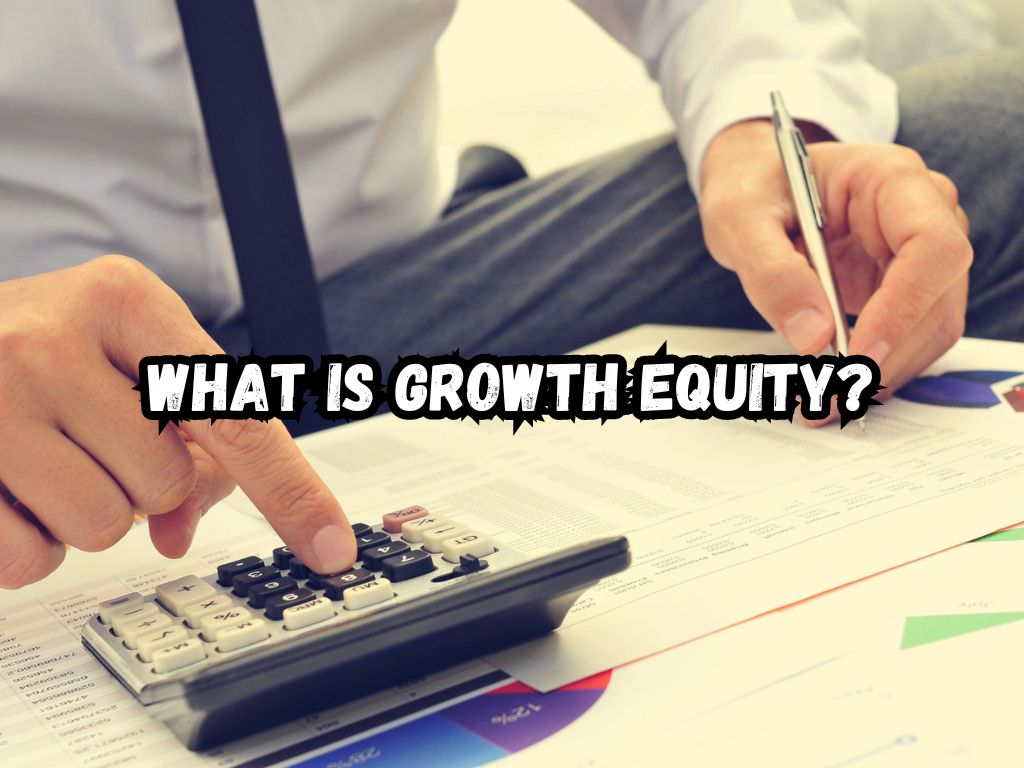In the dynamic landscape of business finance, growth equity stands out as a pivotal force driving companies towards expansion and innovation.
This type of private equity investment targets more mature companies seeking funds to scale up operations, enter new markets, or develop new products without relinquishing control.
At its core, growth equity bridges the gap between venture capital and traditional debt financing, offering a unique blend of risk and reward.
This article delves into what is growth equity to shed light on its mechanisms, benefits, and potential pitfalls.
What Is Growth Equity?
Growth equity refers to investments made in relatively mature companies that show potential for significant growth. Unlike venture capital which bets on early-stage companies, growth equity targets firms with proven business models and solid revenue streams.
This investment strategy is particularly appealing to businesses that are too large for seed funding but not ready for a full public offering.
The distinct trait of growth equity lies in its position in the spectrum of private financing. It does not seek control over operations as traditional equity does. Instead, it focuses on minority investments in companies with a strong management team willing to collaborate with investors.

The Mechanics of Growth Equity
Initiating a growth equity fund involves meticulous planning and a clear understanding of the target sector. Investors look for companies that have moved past the startup phase and demonstrate a clear path to significant growth and profitability.
The investment process is highly selective, aiming to identify businesses with a competitive edge in their industry.
In funding rounds, growth equity plays a critical role by providing capital that does not saddle the company with debt or challenge the original owners’ control.
This capital injection supports strategic initiatives like geographic expansion, product line extension, and infrastructure improvement.
The Role of a Growth Equity Investor
Growth equity investors are more than just financiers; they are partners in scaling the business. Their duties extend beyond providing capital. They offer strategic guidance, industry connections, and operational expertise.
Investors work closely with the company’s management team, usually securing a seat on the board of directors to influence the company’s growth path actively.
Becoming a successful growth equity investor requires a blend of financial acumen, strategic thinking, and sector-specific knowledge. Patience and the ability to work collaboratively with founders and CEOs are also vital.
Advantages and Disadvantages of Growth Equity
The primary advantage of growth equity is its ability to fuel expansion without the need for debt or surrendering significant equity. Companies retain control over their operations while benefiting from the strategic and financial resources of their investors.
Growth equity also aligns with long-term growth objectives, offering companies the flexibility to scale at a manageable pace.
However, growth equity comes with its challenges. The selective nature of growth equity means that not all companies will qualify for this type of investment.
Furthermore, investors expect a significant return on their investment, putting pressure on companies to meet growth targets. In some cases, this may lead to conflicts between investors and the original owners over the direction of the company.
Case Studies on Growth Equity
Several high-profile companies have successfully leveraged growth equity to propel their development. These case studies highlight the transformative impact of growth equity on businesses poised for expansion.
One notable example involves a tech company that utilized growth equity to fuel its international expansion. Initially strong in its domestic market, the company partnered with a growth equity firm to access new markets.
The investment supported localized product development and marketing strategies, paving the way for successful market entry.
Another example is a retail chain that used growth equity to revamp its e-commerce platform. Facing stiff competition from online retailers, the company sought growth equity to enhance its digital presence. The investment funded technological upgrades and expanded online offerings, resulting in a significant increase in online sales.

Frequently Asked Questions
What is growth equity in simple words?
Growth equity is investment capital provided to relatively mature companies looking to expand or restructure operations without incurring debt or losing control of their business.
How does growth equity work?
Investors provide capital in exchange for a minority stake in the company. They offer not only funds but also strategic guidance and industry connections to help the company grow.
How is growth equity different from venture capital?
While venture capital focuses on early-stage companies with unproven business models, growth equity targets more mature companies with established revenue streams looking for expansion.
Why should a company consider growth equity as a financing option?
It allows companies to access significant capital without taking on debt or giving up majority control, supporting ambitious growth initiatives with the guidance of experienced investors.
What are potential risks associated with growth equity investment?
Companies may face pressure to meet high growth targets, and disagreements can arise over strategic decisions, potentially leading to conflicts between investors and original owners.
Can you provide examples of companies that have successfully utilized growth equity?
While specific company names are beyond the scope of this article, successful cases typically involve firms that used growth equity for expansion, technological upgrades, or market diversification.
How can one become a growth equity investor?
It requires a mix of financial knowledge, industry expertise, and strategic insight, often developed through experience in investment banking, private equity, or a related financial sector.
Conclusion
Growth equity emerges as a vital tool for companies at the intersection of startup agility and established stability.
By offering a mix of financial support and strategic guidance, growth equity enables companies to pursue ambitious growth strategies without compromising operational control.
As the business landscape evolves, growth equity will continue to play a crucial role in shaping the trajectories of companies ready to leap to the next level of success.


 Tags:
Tags:










